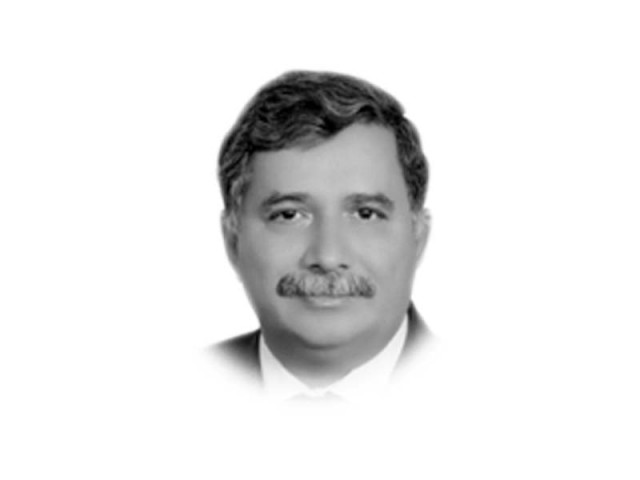State of human rights in Afghanistan
The recent scenes of barbarity have exposed devastating situation in Afghanistan

Uncertainty over the political and diplomatic future of Afghanistan loom large as the world is still bewildered over the blitzkrieg of the Taliban that resulted in a bloodless takeover of Kabul. The country now stands divided over the Taliban’s victory, which has received mixed reactions. Many have eulogised the Taliban’s takeover as a transnational movement, interpreting sharia in their own sense. Violence is rational behaviour because the sword is the deciding factor against the enemy. On the contrary, those who believe in liberty, freedom, and right to life have expressed anguish and concern over the Taliban’s takeover. The use of violence is considered an anathema.
The tragic events that unfolded in Afghanistan in recent days left everyone traumatised and sorrowful. Babies were thrown over walls in a bid to protect them, young men clung to airplanes boarding foreign troops in attempts to escape the country but only ended up falling off the sky. The situation was further worsened by a suicide attack at Kabul airport, which killed members of foreign troops as well as Afghan civilians. The recent scenes of barbarity have exposed the devastating situation in Afghanistan, which is only expected to further deteriorate.
Human rights under the shadows of guns and bombs are a farfetched thought. A refugee remarked, “I left my whole life, my home to continue to have a voice. Once again, I am running from my motherland. Once again, I am going to start from zero. I took only my cameras and a dead soul with me across an ocean. With a heavy heart, [I say] goodbye [to] motherland.” This demonstrates the dire human rights conditions in the country. People have the right to enjoy an environment free from coercion and uncertainty, which cannot be provided in state ruled by men with mob mentality.
There is a need for laws and rigorous reforms. The laws should be in accordance with the Universal Declaration of Rights. Certain rights are intrinsic in nature and cannot be taken away. In all civilised nations around the world, human rights have great precedence in their constitutions. The political systems of these civilised nations are built around the values of democracy and human rights. A democratic system is essential for the provision and protection of human rights. The theocratic model, under whatever nomenclature and concept, negates democracy and is a replica of totalitarianism. In a model that is based on the notion of divinity, the ruler cannot be questioned. Under the divine right of rule, it is the ruler’s word that carries the finality.
The jubilant supporters of the Taliban’s governance argue that peace has returned, and life will be safer. However, in today’s world the “right to life” is defined and understood in a wider scope. Life does not mean mere survival but also includes the quality of life. Under this wider scope, instead of interpreting life as vegetative, the boundaries are extended to various rights that make the right to life meaningful.
Under the UN declaration, human rights include respect for the norms of international law, especially relating to the use of force. The recognition of the primary responsibility of states is to protect their populations from genocide, crimes against humanity, ethnic cleansing, and war crimes. The human rights framework also includes addressing the reasons for displacement and statelessness.
The proliferation of hate speech, incitement to violence, and violent extremism threaten human rights. Fundamental rights such as the right to free movement, right to form an association, right to freedom of speech, right to religion, and freedom of choices aid a meaningful life. At present, the chaotic situation in Afghanistan, with images of gun-toting persons all around, has put the whole population in a state of siege. People’s movement has been restricted which demonstrates the absence of even the most basic of human rights in the country.
A country that does not follow a constitution or prescribed laws cannot be deemed suitable for the provision and protection of human rights. Amongst many others, UN high commissioner for human rights Michelle Bachelet also expressed concerns over the violations of human rights in Afghanistan. She urged the Taliban “to adopt norms of responsive governance and human rights, and to work to re-establish social cohesion and reconciliation, including through respect for the rights of all who have suffered during the decades of conflict”.
The question at hand is: will the Taliban adhere to appeals of the human rights watchdogs? Those who understand the worldview of the Taliban are already aware that the future political setup will be highly centralised. The Ameer ul Momineen will be the head of the temporal and spiritual world. In this form of system, there will be little to no space for any political groups. To mitigate their image and showcase freedom, the Taliban may include some influential people from the past government in subordinate positions. But this would most likely be a temporary adjustment. Human rights in a broader context will not be conspicuous in a Talibanised Afghanistan as they are in other civilised nations.
Published in The Express Tribune, September 1st, 2021.
Like Opinion & Editorial on Facebook, follow @ETOpEd on Twitter to receive all updates on all our daily pieces.














COMMENTS
Comments are moderated and generally will be posted if they are on-topic and not abusive.
For more information, please see our Comments FAQ